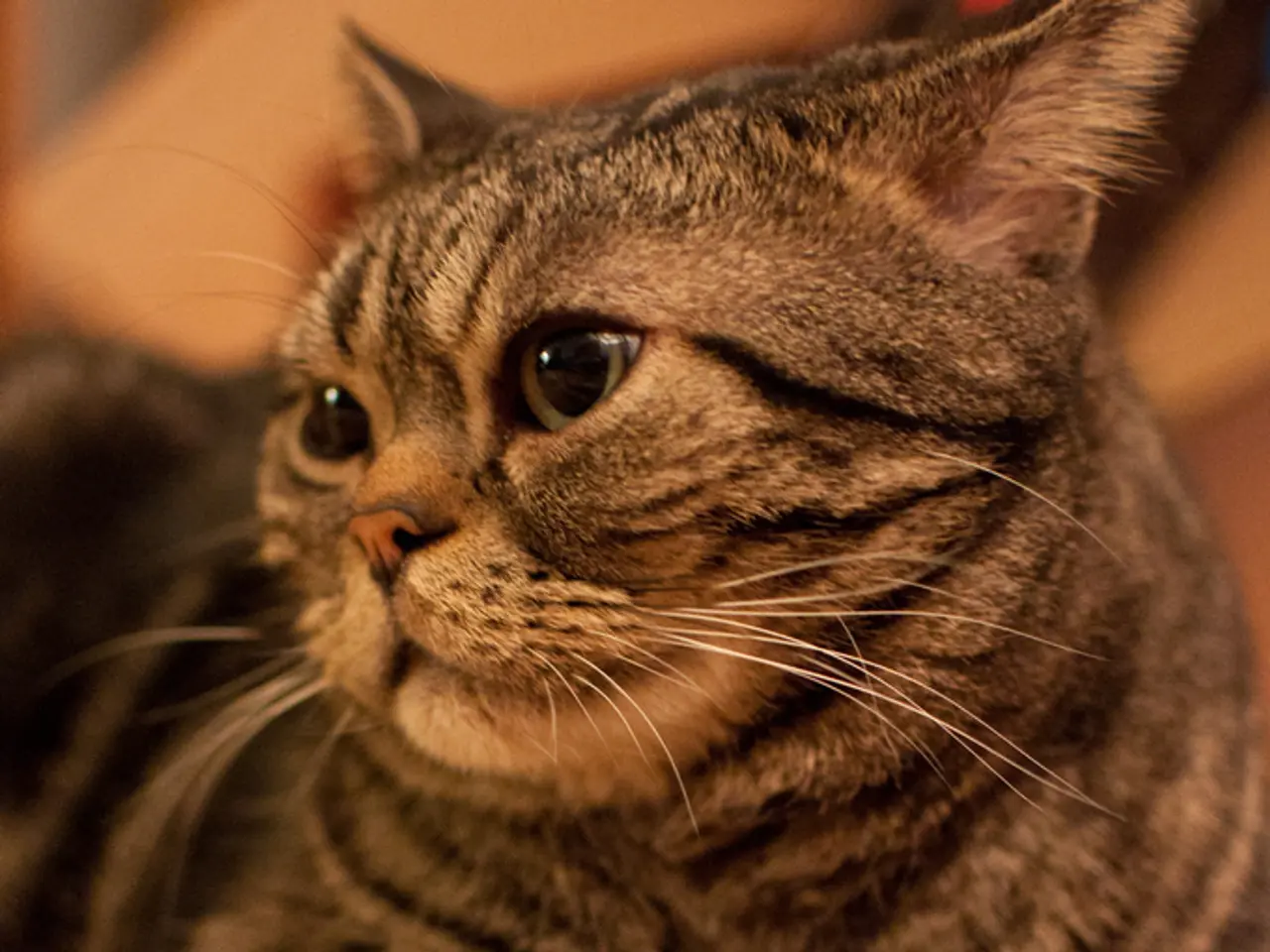Excessive Meowing in Cats: Understanding the Causes
==================================================================================================
Cats are known for their distinctive purrs, but sometimes they can become excessively vocal, which can be a source of concern for their owners. This article explores the various causes of excessive meowing in cats, focusing on medical conditions, behavioral factors, and breed-specific traits.
Medical Conditions That Can Cause Excessive Meowing
Several medical conditions can lead to a cat's increased vocalization. For instance, hyperthyroidism, a common issue in older cats, can cause discomfort and metabolic changes that result in more meowing [2][3][5]. Hypertension (high blood pressure) can also cause distress, leading to more vocalization [2][5].
Pain, whether due to conditions like arthritis, urinary tract infections, or cystitis, can increase a cat's meowing [3][5]. Cognitive dysfunction, or feline dementia, can affect senior cats, causing them to become disoriented and vocalize more frequently, especially at night [1][2][5]. Deafness, if left unnoticed, can lead to louder and more frequent meowing [3]. Other illnesses, such as kidney disease and bladder obstruction, can also cause vocal distress [3].
Behavioral and Emotional Factors
Cats meow to signal their needs, often around mealtimes [1][2]. They may also vocalize to seek attention or reassurance from their owners [1][2][5]. Loneliness or boredom, particularly in indoor cats with insufficient stimulation, can lead to excessive vocalization [1][2].
Stress and anxiety, triggered by changes in environment, separation anxiety, or the presence of other cats (territorial disputes), can increase meowing [1][2][3]. Hormonal behavior, such as when cats are in heat or responding to mating cues, can also result in loud meowing [3]. Learning can play a role, as cats may be reinforced to meow more if owners respond consistently with food or attention [1].
Breed-Specific Traits
Some breeds, notably Siamese cats, are naturally more vocal, with louder, more persistent meows as part of their temperament [3].
In summary, excessive meowing often signals a need, whether physical, emotional, or environmental. If meowing is new, unusual, or persistent, veterinary evaluation is recommended to rule out medical causes [3][5]. Addressing behavioral causes includes ensuring adequate play, consistent routines, and environmental enrichment [1][2].
A cat might meow at night if it needs more stimulation during the day. A vet visit can help rule out any health problem causing excessive meowing. By understanding the causes of excessive meowing, cat owners can take steps to alleviate their pets' distress and promote a harmonious home environment.
References:
[1] Coren, S. (2009). Why Does My Cat? The Feline Answer Book. DK. [2] Hodgkins, S. (2017). Cat Behavior: Solving Behavior Problems in Cats. John Wiley & Sons. [3] Landsberg, G. M. (2012). The Cat's Mind. Wiley-Blackwell. [4] Mickey, D. (2016). Understanding and Addressing Feline Behavior Problems. Elsevier. [5] Overall, K. L. (2013). The Oxford Handbook of Feline Medicine. Oxford University Press.
- The health of a cat, particularly senior cats, can be affected by medical conditions such as hyperthyroidism, hypertension, pain due to conditions like arthritis, urinary tract infections, cystitis, cognitive dysfunction (feline dementia), deafness, kidney disease, and bladder obstruction, which can all lead to increased meowing.
- Emotional and behavioral factors that cause excessive meowing in cats include seeking attention, needing reassurance, feeling lonely or bored, responding to stress or anxiety, hormonal behavior, and learning patterns reinforced by owner responses with food or attention.
- Some cat breeds, like Siamese cats, are known for their naturally loud and persistent meows, which are part of their temperament.
- To maintain a harmonious home environment, cat owners should ensure their pets are stimulated during the day, rule out any health problems causing excessive meowing through vet visits, and address behavioral issues by establishing consistent routines and providing environmental enrichment.




